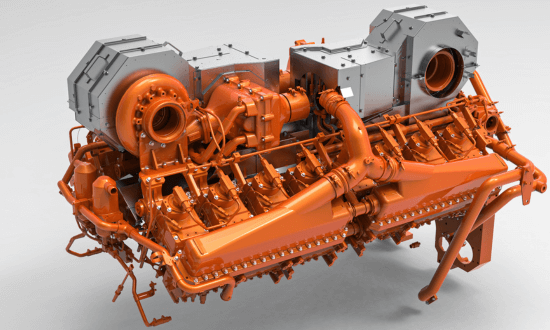The risks are high when a construction machine bursts into flames. There is danger for man and machine alike. Not only that, but equipment can also be affected by damage, resulting in financial losses and delays. To prevent these risks, appropriate fire protection measures should be taken to avoid a machine fire on the construction site.
Why is proper fire protection for construction machinery particularly important?
The use of powerful construction machinery is indispensable for the successful execution of construction projects. This includes truck-mounted cranes, asphalt milling machines, excavators, rollers and more.
The use of increasingly powerful construction machinery also increases the risk of fire on construction sites. The right fire protection measures for greater efficiency and occupational safety are therefore more important than ever.
Fire protection and reliability should be a top priority for off-highway vehicles. After all, if a fire occurs on a construction site, the consequences weigh heavily. A fire on a construction site can not only cause significant damage to the construction equipment itself, but also lead to long periods of downtime and the associated loss of income. In worse cases, a fire can even lead to injuries or fatalities.
That is why it is important to take fire safety seriously and take appropriate measures to prevent fires.

Fire hazards on construction sites
Construction sites present many hazards. They are among the places with one of the greatest accident risks in the modern working world.
A large proportion of machine fires on construction sites occur in the engine compartment, where high temperatures prevail on the one hand and easily combustible materials are located on the other. If a leak occurs, for example, escaping fuels can easily ignite upon contact with the hot surfaces of the engine and exhaust tract. Many operating fluids ignite at temperatures as low as 250 °C. In the engine compartment and exhaust tract of construction machinery, however, surface temperatures of up to 1,000 °C are not uncommon.
In addition, it is not uncommon on construction sites for sparks and particles to fly or dust to be in the air during welding, cutting, soldering, etc., which can also trigger a fire.
Without suitable precautions, this can lead to a dangerous fire or even an explosion.
Consequences of a fire on construction sites
A machine fire on a construction site has serious consequences. A spreading fire always poses a great risk to all parties involved. There is a high risk of injury and failure to comply with work safety measures. In addition, the damage to the machine and surrounding equipment can result in significant downtime, which in turn can result in delays to entire construction projects and associated costs. This threatens the profitability of the construction company.
It is therefore urgently necessary to minimize fire risks on construction sites as best as possible.
Fire protection measures on construction sites
The fire safety standards for construction machinery are regulated in the fire safety standards of construction site safety, as well as machinery safety. There are certain measures that must be taken to mitigate the risk of fire and improve fire safety. These listed measures include early fire detection, fire suppression, and regular maintenance of machinery.
Special attention is also paid to preventive fire protection measures. These are measures that actively minimize the risk of fire as a preventive measure and thus improve fire protection, such as high-temperature insulation.

High-temperature insulation for construction machinery
Since most fuels and operating fluids ignite at temperatures as low as 250 °C, preventive fire protection measures must first and foremost be able to reduce the temperature and at the same time form a protective barrier between engine parts and hazardous substances. The best solution for this is tmax high-temperature insulation.

Image: tmax metal high-temperature insulation for construction machinery
The right high-temperature insulation reduces the surface temperature of all exposed components in the engine and exhaust tract of your construction machine to a harmless 220 °C – or even down below 110 °C if desired. In addition to effective fire protection, targeted temperature control also enables compliance with exhaust gas standards, noise reduction and perfect contact protection.
 |
 |
 |
 |
| Fire protection |
Contact protection |
Exhaust gas aftertreatment |
Soundproofing |
Conclusion
Fire protection is a key pillar of construction, and construction equipment must be efficient, reliable, and safe. By improving high-temperature resistance, companies can ensure that every construction site is handled safely and efficiently. As such, it is critical for all parties to take steps to ensure fire safety. With this blog post, we want to motivate you to support the implementation of high-temperature protection requirements in your company.
Investing in the safety of your construction equipment and its workplace will pay off in the long run – both for employees and for the success of your company. So you, too, decide in favor of better protected machinery on your construction site and let's increase safety together!